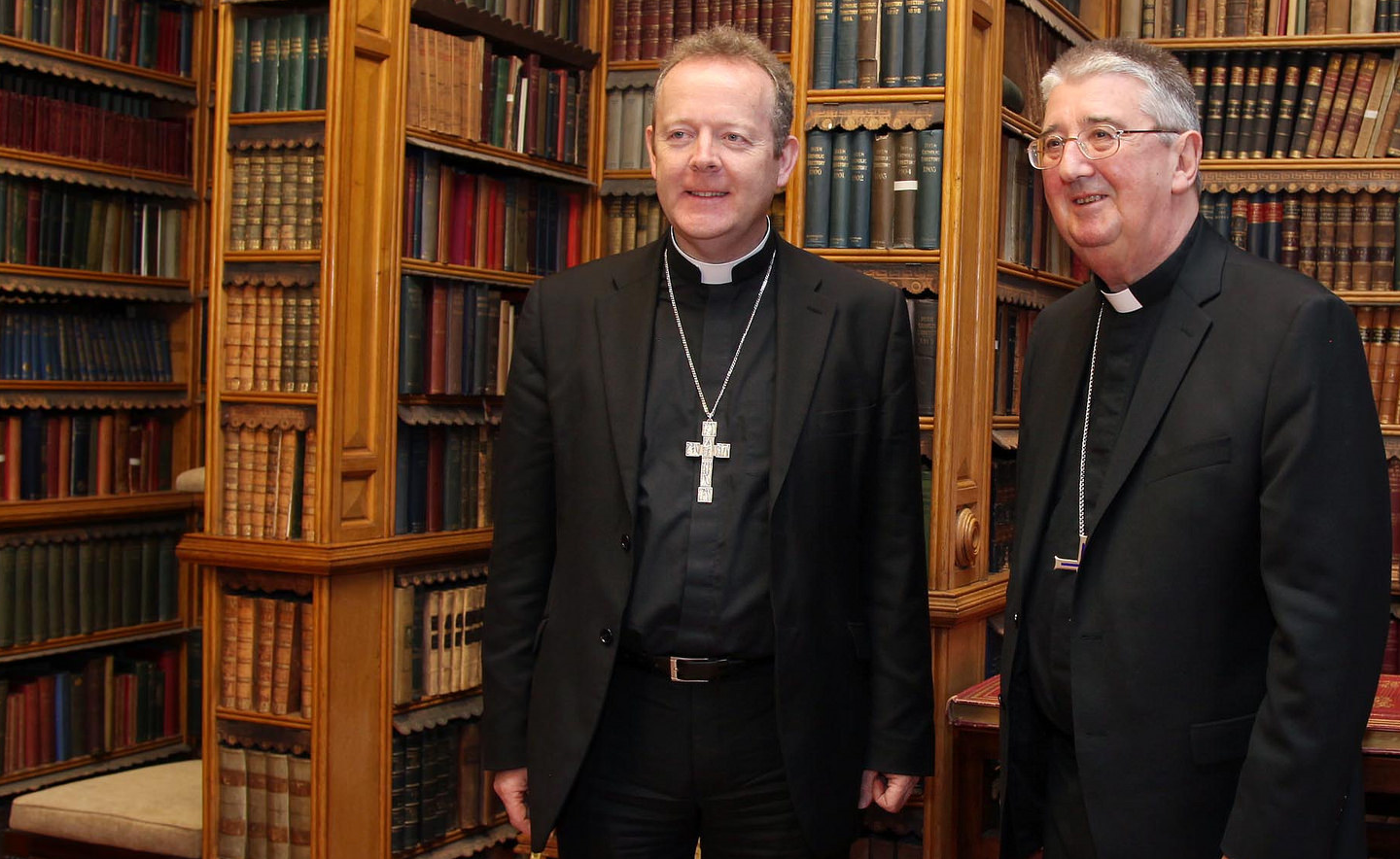On Divine Mercy Sunday, 28 April 2019, in light of the Sri Lankan bombings both Archbishop Eamon Martin of Armagh and Archbishop Diarmuid Martin of Dublin addressed today’s rising levels of Christian persecution.
During his homily at Saint Patrick’s Cathedral, Armagh, Archbishop Eamon Martin said: “It is heart-breaking to think that our Sri Lankan brothers and sisters in Christ were unable to gather today for Mass today, Divine Mercy Sunday, because of risk to their lives following the horrific bombings of worshippers and tourists on Easter Sunday. These atrocities remind us of the life-threatening conditions of our fellow Christians in many parts of the world. Such oppression and violence against Christians is actually, I am sad to say, on the increase.”
In July this year, Archbishop Eamon Martin will unveil a shrine to the former Archbishop of Armagh, Saint Oliver Plunkett at Saint Patrick’s Cathedral. The Archbishop said: “The shrine will honour all the martyrs of yesterday, today and tomorrow, recognising that persecution and martyrdom of Christians does not belong to the past – it is sadly a present day reality for many of our brothers and sisters and this situation is likely to continue, or even get worse into the future.”
Speaking on the reality of Christian martyrdom, Archbishop Eamon Martin said: “The witness and martyrdom of so many persecuted Christians around the world challenges us to ask, what does their suffering mean for us? On #RedWednesday last November I offered three suggestions:
- Firstly, the persecution of Christians demands that we be willing to engage in reconciliation and peace building ourselves, including between Christians of different traditions here in Ireland. This is particularly important for us as all-party talks are about to resume here in the coming weeks, following the violent death of young Lyra McKee.
- Secondly, the plight of persecuted Christians reminds us of the importance of advocating for freedom of conscience and religion which is enshrined in article 18 of the UN Declaration of Human Rights. This is true whether for Christians, Muslims or other minorities.
- Thirdly, the martyrdom and witness of our fellow Christians invites us to consider how we ourselves witness to our faith in Irish society.”
Also on Divine Mercy Sunday, in Saint Mary’s Pro-Cathedral, Dublin, Archbishop Diarmuid Martin said Mass with members of the Sri Lankan community in Ireland.
The Archbishop of Dublin said: “At our Mass this morning, we have representatives of the Sri Lankan community, of all faiths. I thank you for accepting my invitation. I welcome each and everyone one of you, whatever your faith or belief. We come filled with a deep sense of sympathy and solidarity for your people and your nation. We express our closeness especially to those of you who have lost family members or friends.”
Speaking on the tragedy of the Easter bombings in Sri Lanka, the Archbishop said: “We were all shocked at the terrible violence that hit the Sri Lankan nation. Naturally, as Catholic Christians we remember in a special way our own Christian brothers and sisters who were among the prime targets and victims of the violence. May God grant them eternal rest and peace.”
He continued: “We all know however that an attack on a minority in a population, an attack on any single group within a population, is an attack on the entire population. The attack on Sri Lankan Catholics, the attack on innocent visitors to your country, an attack on so many children is an attack on the most noble and peace-loving tradition of every Sri Lankan and on the Sri Lankan nation.”
During his homily, the Archbishop said: “Both Sri Lanka and Ireland have known the horror of violence and have experienced the joy of an emerging peace. Men and women of violence betray the deep desire of humanity the world over for a future of peace.”
Archbishop Diarmuid Martin concluded: “May the God of peace touch all our hearts and bring us closer to each other in the knowledge that peace and not violence constitutes the only sustainable future for our world and especially for our younger generation. Peace constitutes the only sustainable path to the future, not as a pragmatic judgement, but because peace expresses something fundamental about what being a true human family means.”
ENDS


